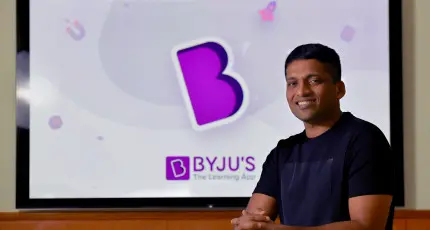Indian education firm Byju’s said on Friday that
General Atlantic,
an existing investor in the startup, has pumped additional money to join its new, ongoing financing round.
While the startup, which helps students learn concepts from math and science using short videos, did not disclose the size of General Atlantic’s check, a source familiar with the matter told TechCrunch that the New York-headquartered equity firm had invested $200 million in the new round at a valuation of $8 billion.
The announcement today comes weeks after Tiger Global invested $200 million in the nine-year-old startup, which
claimed profitability
before the new financing round.
The new round, which has helped Byju’s valuation climb from about $5.7 billion a year ago to $8 billion, has made the edtech startup the third most valuable private firm in the nation after financial services firm Paytm (valued at $16 billion) and budget-hotel operator Oyo (valued at $10 billion).
Byju Raveendran, founder and chief executive of the eponymous startup, said the new investment illustrates “an ever increasing acceptance of our learning programs in small towns across the country.”
Raveendran, a former teacher, founded Byju’s in 2011 — a time when only a few million people in India owned a smartphone and mobile data prices were beyond most people’s budget.
Thanks to the proliferation of low-cost Android handsets in India and dwindling data prices, hundreds of millions of people in the country have come online in the last decade.
Byju’s also employed innovative ways such as using a pizza to help explain complex science concepts. The app has amassed over 42 million registered users, 3 million of whom are paid subscribers. Over 65% of Byju’s students are from outside the top 10 cities in the country, giving many access to quality education for the first time.
“This is a validation of how technology can make high-quality learning content more accessible to students, irrespective of their geographies. In fact, technology as an enabler has a lot of potential to further innovate the way in which learning can be made personalised and impactful,” Raveendran added.
More to follow…
 简体中文
简体中文

